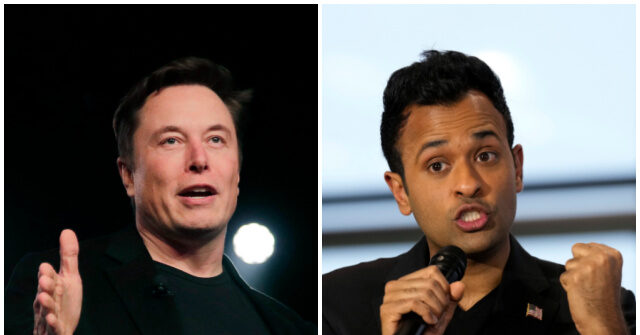The Department of Government Efficiency (DOGE), recently initiated by President Trump with Elon Musk and entrepreneur Vivek Ramaswamy at the helm, aims to revolutionize the approach to government by adopting a model focused primarily on cost-cutting. The department is actively seeking “small-government revolutionaries,” individuals who are willing to dedicate significant time and effort—often exceeding 80 hours a week—to engage in what Musk and Ramaswamy describe as “unglamorous” work. They’ve issued a call on social media platform X, expressing gratitude for public interest and emphasizing the need for high-IQ candidates to join their mission. The top applicants will be personally reviewed by Musk and Ramaswamy, underscoring the importance of their recruitment initiative.
Trump heralded this new venture while stating that Musk and Ramaswamy’s involvement signifies a commitment to dismantling existing bureaucratic structures within the government. His announcement depicted DOGE as critical to his administration’s broader “Save America” movement, characterized by an agenda focused on cutting regulations, eliminating wasteful spending, and restructuring federal agencies. The involvement of prominent figures like Musk and Ramaswamy not only brings a strong business perspective to governance but also signals a substantial shift in how government operations are viewed and managed. The administration’s philosophy appears to be centered on efficiency and reduction of unnecessary bureaucratic complexities that are perceived as barriers to effective governance.
Ramaswamy has publicly highlighted the growing issues surrounding bureaucracy, articulating a critique of Congress’s historical role in ceding power to regulatory bodies. He pointed out that over the last decade, Congress has been sidelined as the source of lawmaking, relinquishing its authority to a bureaucratic system that generates an astonishing volume of regulations each year. He called for an end to the practices that have led to bureaucracy’s excessive reach, suggesting that this entrenchment can be reversed—it is time, he insists, to “unplug the printer” producing the flood of rules and laws that many argue inhibit effective governance and economic growth.
During discussions about DOGE, political figures like Rep. Warren Davidson have echoed these sentiments, underscoring the potential for significant changes in how the government operates. Davidson pointed out that while it is easy to criticize the existing bureaucratic machinery, real change requires addressing the structures that created these agencies in the first place. He highlighted that many departments, such as the Environmental Protection Agency and the Department of Education, were established by Congress, and consequently, discussions about size and efficiency should consider their foundational mandates. Davidson also implied that the staffing levels at these agencies may be excessive, advocating for a reassessment of how many employees are truly necessary to fulfill their missions effectively.
The overarching goals of DOGE resonate with a growing ideology that champions more efficient government, one that can respond to the needs of citizens without the encumbrance of excessive regulation and paperwork. This reflects a broader trend among certain segments of American government and society that favor private sector efficiency principles being applied to public administration. The department’s leadership appears committed to seriously addressing issues of government waste and regulation and aims to revitalize the role of Congress in the legislative process, potentially restoring a balance that some argue has been lost to regulatory agencies.
In summary, DOGE represents a significant pivot in governmental approach under the current administration, led by high-profile advocates who bring contrasting yet complementary philosophies to the table. As Musk and Ramaswamy outline their mission, they emphasize a shift towards cost-cutting, efficiency, and a re-evaluation of expansive bureaucratic structures. Their recruitment campaign hopes to attract innovative thinkers dedicated to effecting change, promising an overhaul of current government practices in favor of an agile, less encumbered system. Whether their vision will translate into concrete and enduring reforms remains to be seen, but the discussion surrounding DOGE has already sparked considerable dialogue on the future of government effectiveness and efficiency in America.

